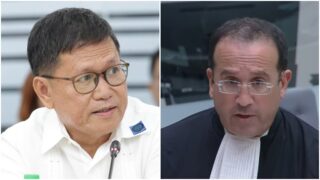It’s been over four months since Alan Purisima resigned his post as Philippine National Police chief in connection with the botched Mamasapano raid which cost the lives of, among others, 44 PNP Special Action Force commandos, and which he allegedly orchestrated clandestinely despite his suspended status at the time. The job of leading the PNP fell on Deputy Director General Leonardo Espina, who, in the traumatic aftermath of Mamasapano, has shown both empathy and resoluteness in steering the police force through a most challenging period.
Espina has done admirably in the job so far, but he is retiring on July 19 after four decades in the service. He has indicated disinterest in extending his government stint in any other capacity, calling himself “an absentee father, an absentee husband” who would rather make up to and spend his days with his family. Rare among government officials, he has flat-out rejected any suggestion that he run in the coming elections and convert his considerable public standing into a Senate seat perhaps, or any other powerful position. With his leaving, then, the government is poorer by one good man, at a time when there is precious few of them; and, through no fault of his own, he is leaving behind a headless PNP, the Aquino administration having tarried all this time at naming a replacement to the disgraced Purisima.
What is taking Malacañang an inordinately long time to find a new PNP chief? Surely it knew from the public-relations nightmare that sprang from revelations about Purisima’s illegal role in Mamasapano that the erstwhile PNP chief and President Aquino’s close friend could no longer get back his old post, from which he had earlier been suspended by the Ombudsman over a corruption scandal. And when Purisima finally decided to resign, and Espina was to retire in five months, shouldn’t that scenario have triggered in the Palace a scramble to begin the search for new candidates, so that by the time Espina is given retirement honors, a new chief can slide into the job seamlessly, thus sparing the PNP any period of instability and discontinuity?
But there was Malacañang spokesperson Edwin Lacierda making the statement just last Monday that the President has interviewed a number of officers to gauge their qualifications for the job, adding that the latter will make his choice based on qualifications, track record and merit. Typical official vacuousness aside, what is notable about that statement is what it doesn’t say—that no prompt search had been done by Malacañang’s bright minds despite the lead time, and only now is the President preoccupied with talking to prospective candidates to check out their fitness for such a crucial post.
According to PNP records, the total crime volume nationwide in 2014 registered at 1,161,188 incidents. The average monthly crime rate was 97, and in the National Capital Region it was much higher: 177. The police say out of the million-plus criminal incidents docketed last year, some 435,396 were solved—a figure that would surely make the public eyebrow go into orbit; the general perception, after all, is that the PNP is not only an inept organization but, in many cases, is also in cahoots with the very criminal syndicates and lowlifes it is mandated to go after. Despite the public sympathy generated for the Fallen 44 in Mamasapano, the PNP as a whole has not rehabilitated itself from accusations of everyday incompetence and inefficiency, let alone active involvement in illegal activities, from mulcting motorists to kidnapping people for ransom and trading in contraband.
It’s an organization that needs a leader with not only an iron, incorruptible will against crookedness on the job but also a keen understanding of the gut-level problems that ordinary policemen face, from the wearying lack of adequate equipment and support (has any Malacañang hotshot visited an ordinary police precinct lately?) to the sheer magnitude of criminality rising all around, much of them eventually unredressed, which has much deeper social roots than plain ineffective law enforcement by the police.
It’s an acute and lingering problem. And President Aquino is compounding it needlessly by taking his sweet time to choose a new chief that can whip the PNP back in line.


